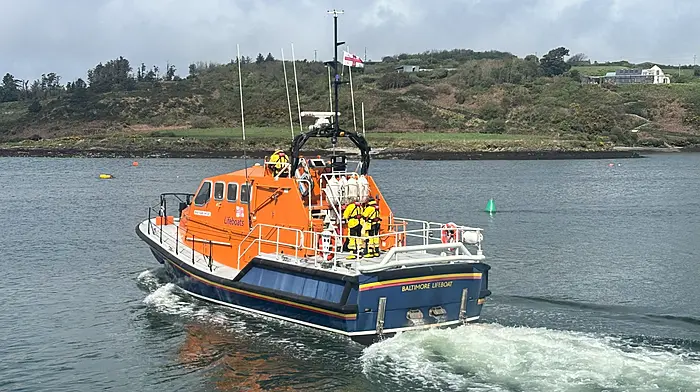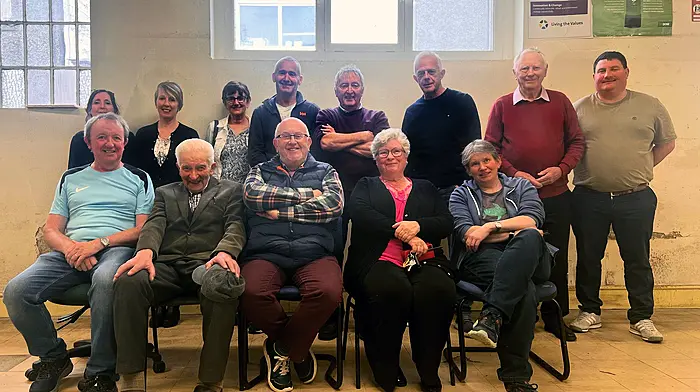Be sure to see the film Jadotville! It’s a fascinating story about a small group of Irish Army men from the 35th Battalion ‘A’ Company who routed a force of 3,000 Belgian and Katanga mercenaries during the Congo civil war.
Be sure to see the film Jadotville! It’s a fascinating story about a small group of Irish Army men from the 35th Battalion ‘A’ Company who routed a force of 3,000 Belgian and Katanga mercenaries during the Congo civil war.
Outnumbered 20 to one, the 157 lightly armed Irish UN peacekeepers held the line for five days until they ran out of ammunition and water but, thanks to the remarkable tactical awareness of their leader, Comdt Pat Quinlan, and the military skills of his men, they suffered no fatalities.
The film raises issues that resonate in today’s political world. The most important is why 55 years were allowed to pass before the Irish government and the military top brass acknowledged their heroism?
The occupation of Jadotville, ostensibly to protect civilians, was ordered by Irish diplomat Conor Cruise O’Brien (then special representative to the secretary general of the UN, Dag Hammarskjold) and by Lt Gen Seán McKeown, who had overall command of UN troops in the Congo.
On taking up their position, almost 3,000 Belgian mercenaries and Katanga insurgents attempted to overrun the Irish and to use them as hostages as part of a political bargaining strategy with the UN. In the ensuing battle, the Irish killed 300 mercenaries and wounded hundreds before surrendering.
Incompetence
But because the myth of UN impartiality in international conflicts had to be preserved, Jadotville was disgracefully swept under the carpet with the connivance of the Irish Army and Government.
And for decades the chin-wagging faction in military circles promoted the lie that Comdt Quinlan’s surrender was cowardly. It was depicted as an embarrassment, a shame, and his men were referred to contemptuously as the ‘Jadotville Jacks’.
Also hidden was the fact that neither Lt Gen McKeown nor Conor Cruise O’Brien gave the Irish peacekeepers decisive orders.
In a letter published after his death in 1997, Comdt Quinlan’s anger at the incompetence of the civil and military leadership was evident. Both O’Brien and McKeown had recklessly sent ‘A’ Company into a position that was untenable and the commandant was not prepared to let his men die for nothing. ‘The UN made a mess of things. Organised by the Belgian Government, we were lured to Jadotville and ended up as hostages ... it is a pity that we, who never believed in the use of force, had to suffer for the blunders of little dictators and stupid military leaders ... we were not there to shoot Africans, we came to help them.’
Finally, last month, at a ceremony in Custume Barracks, the State made a delicate effort – bungling might be a better word – to acknowledge the bravery of those who fought at Jadotville. A Presidential Unit Citation (whatever that is) was presented to the surviving soldiers. But, neither President Higgins nor the Minister for Defence, Enda Kenny (who is also Taoiseach), turned up.
Instead an unknown mini-minister, Paul Kehoe, graced the event. He had little to say. Also present was local motormouth,‘Boxer’ Moran TD, who hoovered up whatever headlines (and votes) that were floating about.
In a one-liner, the Indo described the event in a way that characterised the Government’s attitude: ‘Soldiers involved had sought acknowledgement for their work for more than 50 years’. Their work’, mind you!
Poetic licence
As for the film, Jadotville, which went on release almost at the same time that the State carried out their ‘recognition’ ceremony, it depicts Cruise O’Brien as a megalomaniac who is indifferent to the fate of the Irish soldiers holding Jadotville. Lt Gen McKeown is presented as indecisive and under the thumb of O’Brien.
Neither man comes out well in the film, least of all McKeown, who was in command of 20,000 troops of different nationalities and yet, showing little concern for the consequences, sends Comdt Quinlan’s ‘A’ company into mercenary held territory that had poor communication and an access route that was easily blocked to reinforcements and supplies.
At the end of the film, Comdt Quinlan, on behalf of himself and the men, socks Lt Gen McKeown on the chin. The scene met with cheers from the audience, and although it was clearly a bit of poetic licence on the part of the filmmakers, it caught the mood.
As for the contemptible ‘Cruiser’, regular Irish soldiers universally detested him. The film, however, does not record the dismal trajectory of his later political career when he was forced to step down from his UN position and from the Irish diplomatic service in the wake of ‘war-mongering’ accusations from the international community. As Britain’s prime minister, Harold Macmillan cruelly said: he was ‘an unimportant, expendable man’.
Bounced back
But Cruise O’Brien’s Congo antics did not put an end to his partiality for mischief-making. In the 1969 general election, he bounced back on winning a seat for the Labour Party in Dublin North-East. During the years 1973-77 he became the most loathed government minister since the Irish Civil War.
Seeing the potential, he jumped on the anti-nationalist bandwagon after the outbreak of armed conflict in the North, and he vigorously enforced censorship of RTE under Section 31 of the Broadcasting Act.
Shepherding the passage of the 1976 Emergency Powers Bill through the Dáil, he declared his intention was to extend censorship beyond broadcasting and to target educators who failed to ‘cleanse themselves’ of the culture of republicanism.
Newspaper editors who published pro-republican or anti-British letters were also to come under his legislative cosh. He supported the Heavy Gang, turned a blind eye to Garda brutality and described Bloody Sunday victims as ‘Sinn Féin activists operating for the IRA’. He opposed the Good Friday Agreement on the basis that it allowed Sinn Féin into government.
Extremist solutions
It is likely that his failure to be taken seriously as an earnest parliamentarian eventually drove him barking mad. For instance, he proposed in his Irish Independent column that the British Government should ask the US Air Force to carry out surgical air strikes on West Belfast in order to solve the IRA problem once and for all!
The damage he did was enormous – Katanga an obvious case – but the families whose relatives were killed or maimed in the Dublin Monaghan bombings on May 17th 1974, and who cannot get closure to those terrible events, have no reason to remember him with fondness.
Because of O’Brien’s influence on the FG/Labour government, the State made no serious effort to apprehend the British agents responsible for the carnage. The Garda investigation was wound down after three months and a huge amount of documentation mysteriously went missing.
Cruise O’Brien’s bizarre excuse for the failure of the Cosgrave government to prosecute the case was that people had no right to be angry at those responsible for the bombings, unless part of that anger was directed towards republicans.
The ‘little dictator’ who declared war on Katanga – and later on his own people – will not be forgotten.
* The Siege of Jadotville is now available to view on Netflix.








